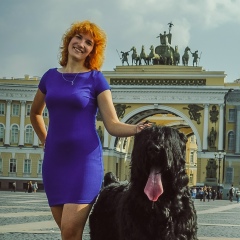В момент агитации за Евросоюз, еще при Януковиче, в начале 2013 года, Львов занимал как раз — сейчас это странно слышать — сдержанную позицию. Здесь регулярно проходили демонстрации против однополых отношений. Здесь пугали ювенальной юстицией (ведь она ставила под контроль насилие внутри семьи). «Европа — это однополые браки» — плакаты партии «Свобода» были развешаны по улицам и в общественном транспорте. Но вот случился Майдан, и этот страх перед «однополой Европой» уступил место реальным опасностям, а потом и вовсе тема исчезла. Революция заставляет делать выбор — между Европой как ценностью и ее «недостатками». И этот выбор вынуждены были сделать даже местные консерваторы, и они его совершили в считанные дни, с тех пор больше никто не боится «однополой Европы». Для Львова это тоже было революцией — одной из многих.
_____________________________________
«Ночь гнева» Львов пережил относительно спокойно. В сущности, суть революций проявляется в эти три дня после смены власти. Милицейские участки разгромили почти все; в здании прокуратуры выбили витражи, которые делали на заказ в Польше. Пострадали витражи — но не люди. Хотели громить магазины, которые принадлежат регионалам; но возникли сами собой другие люди, которые стали эти потенциальные магазины-жертвы охранять. Они быстро организовались в сотни; я помню трансляцию на Громадськом ТВ, когда эти люди с микрофонами в феврале призывали к порядку и просили не допустить погромов. Точно так же, из ниоткуда, возникли патрули Автомайдана. Степень самоорганизации, «на нас смотрит весь мир», лозунг «повстанец — не варвар». В этой революции победили те, кто хотел быть лучше, а не хуже. Я вижу на улицах Львова, условно говоря, потенциальных титушек западного типа, тот же деклассированный элемент. При другом раскладе именно они бы и возглавили «революцию гнева». Но история сложилась по-другому, и местные гопники вынуждены были следовать общему тренду на толерантность.
_____________________________________
«Ночь гнева» Львов пережил относительно спокойно. В сущности, суть революций проявляется в эти три дня после смены власти. Милицейские участки разгромили почти все; в здании прокуратуры выбили витражи, которые делали на заказ в Польше. Пострадали витражи — но не люди. Хотели громить магазины, которые принадлежат регионалам; но возникли сами собой другие люди, которые стали эти потенциальные магазины-жертвы охранять. Они быстро организовались в сотни; я помню трансляцию на Громадськом ТВ, когда эти люди с микрофонами в феврале призывали к порядку и просили не допустить погромов. Точно так же, из ниоткуда, возникли патрули Автомайдана. Степень самоорганизации, «на нас смотрит весь мир», лозунг «повстанец — не варвар». В этой революции победили те, кто хотел быть лучше, а не хуже. Я вижу на улицах Львова, условно говоря, потенциальных титушек западного типа, тот же деклассированный элемент. При другом раскладе именно они бы и возглавили «революцию гнева». Но история сложилась по-другому, и местные гопники вынуждены были следовать общему тренду на толерантность.
At the time of campaigning for the European Union, even under Yanukovych, at the beginning of 2013, Lviv occupied just - now it's strange to hear - a restrained position. Demonstrations against same-sex relationships took place here regularly. Here they were intimidated by the juvenile justice system (after all, it brought violence within the family under control). "Europe is gay marriage" - posters of the "Freedom" party were hung on the streets and in public transport. But then Maidan happened, and this fear of "same-sex Europe" gave way to real dangers, and then the topic disappeared altogether. The revolution forces us to make a choice - between Europe as a value and its “shortcomings”. And even local conservatives were forced to make this choice, and they made it in a matter of days, since then no one is afraid of "same-sex Europe" anymore. For Lvov, this was also a revolution - one of many.
_____________________________________
Lvov survived the "Night of Wrath" relatively calmly. In essence, the essence of the revolution is manifested in these three days after the change of power. The police stations destroyed almost everything; stained-glass windows that were made to order in Poland were knocked out in the building of the prosecutor's office. Stained-glass windows were damaged - but not people. They wanted to smash the shops that belong to the regionals; but other people arose by themselves, who began to guard these potential victim shops. They quickly organized themselves into hundreds; I remember a broadcast on Gromadsky TV, when these people with microphones in February called for order and asked not to allow pogroms. Likewise, out of nowhere, Automaidan patrols sprang up. The degree of self-organization, "the whole world is looking at us", the slogan "the insurgent is not a barbarian." This revolution was won by those who wanted to be better, not worse. I see on the streets of Lviv, relatively speaking, potential aunts of the Western type, the same declassed element. Otherwise, it would be they who would lead the "revolution of anger." But the story turned out differently, and local gopniks were forced to follow the general trend towards tolerance.
_____________________________________
Lvov survived the "Night of Wrath" relatively calmly. In essence, the essence of the revolution is manifested in these three days after the change of power. The police stations destroyed almost everything; stained-glass windows that were made to order in Poland were knocked out in the building of the prosecutor's office. Stained-glass windows were damaged - but not people. They wanted to smash the shops that belong to the regionals; but other people arose by themselves, who began to guard these potential victim shops. They quickly organized themselves into hundreds; I remember a broadcast on Gromadsky TV, when these people with microphones in February called for order and asked not to allow pogroms. Likewise, out of nowhere, Automaidan patrols sprang up. The degree of self-organization, "the whole world is looking at us", the slogan "the insurgent is not a barbarian." This revolution was won by those who wanted to be better, not worse. I see on the streets of Lviv, relatively speaking, potential aunts of the Western type, the same declassed element. Otherwise, it would be they who would lead the "revolution of anger." But the story turned out differently, and local gopniks were forced to follow the general trend towards tolerance.
У записи 7 лайков,
2 репостов.
2 репостов.
Эту запись оставил(а) на своей стене Максим Вигилев



























